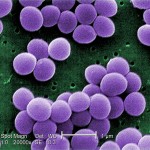Antibiotic resistance cases in China caused by indiscriminate use of drugs
Antibiotic resistance in China is a growing problem and will confront health care professionals for years to come unless the overuse of drugs can be moderated.
This was the warning issued on the occasion of World Health Day by China's vice health minister and the World Health Organization.
China's Vice Health Minister Ma Xiaowei said Thursday that the use of drugs by medical facilities in the country should be "scientific and rational."
Overuse of antibiotics by hospitals has led to antibiotic resistance, particularly drug-resistant tuberculosis. According to WHO representative Dr. Michael O'Leary, drug-resistant TB now accounts for 6.8 percent of all tuberculosis cases in the booming Asian country.
The practice of taking subpar medications has also contributed to the problem of antibiotic resistance. Drug-resistant tuberculosis is tougher to treat and requires the use of more expensive and stronger drugs which can cause adverse reactions.
Development of newer drugs to combat tuberculosis are unable to keep up with the resistant strains and many drugs in the market are being rendered useless.
Another troubling cause is the use of antibiotics in food production. WHO medical officer Dr. Fabio Scano said that in animals, "the more antibiotics are used, the higher is the antibiotic resistance in humans."
A statement from the U.N. health agency said that 150,000 out of 440,000 cases of multiple drug-resistant tuberculosis globally each year result to death.
"Infections caused by resistant microorganisms often fail to respond to conventional treatment, resulting in prolonged illness and greater risk of death," O'Leary added.
Despite the facts, the desire of hospitals in China to boost revenue will only raise the number of cases of antibiotic resistance.
